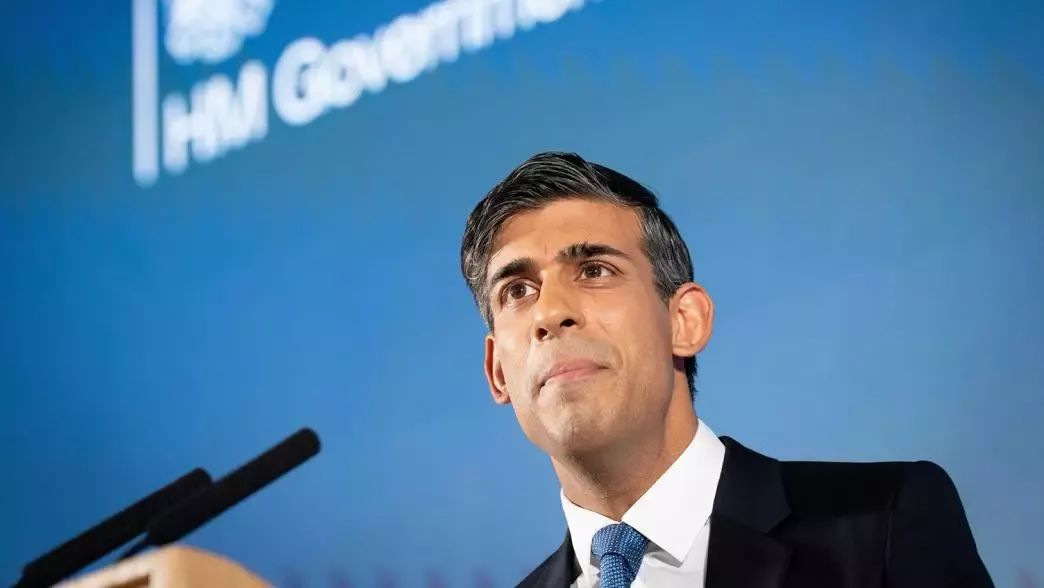The stars are aligning for an autumn of distracted government
Rishi Sunak faces a trying autumn of difficulties and distractions.

A combination of foreseeable events, continuing economic pressures, and a forthcoming exodus of MPs risks an autumn of distracted government, writes Hannah White
The run in to a general election is always a recipe for poor government. Political decisions are made with a view to optics and short-term deliverability. Nuanced policy solutions are rejected in favour of black and white answers that create clear water between parties. Work on the country’s most important problems is sacrificed for superficial policies highlighting wedge issues.
We are already seeing these tendencies in Rishi Sunak’s approach, as he comes under pressure to deliver on the five pledges he made in January. Unfortunately, the foreseeable events of this autumn will provide a context that is even less conducive to good government.
By-elections risk skewing political focus
The first set of curve balls will come from impending by-elections. At least two are baked in – in Rutherglen and Hamilton West following the recall petition against SNP MP Margaret Ferrier and in Mid Beds after Nadine Dorries’ much delayed resignation. Further standards cases in the pipeline mean others could follow.
By-elections are an unwelcome distraction for a governing party at the best of times – soaking up time for leaders, ministers and other MPs – but in the year before an election their significance is outsized. And, as we have already seen with both parties’ reaction to the ULEZ controversy during the Uxbridge and South Ruislip by-election, nationwide policy positions risk being driven by the local issues that are perceived to have influenced the voters of a single constituency.
The next phase of the Covid-19 Inquiry will be a distraction
Next down the track will be the resumption of public evidence sessions in the Covid-19 Inquiry, with Lady Justice Hallett moving on from her first phase – looking at pre-pandemic preparedness – to her second – examining government decision-making. The interim report on the first phase is likely to land before the election – which will give plenty of meat for the opposition parties and the media to chew on. And the second phase has the potential to be messy for the current government, involving oral evidence from current and recently former ministers, advisers and officials and, where the inquiry decides to draw upon them, the publication of documents including diaries and WhatsApp messages.
In the long run the Inquiry has the potential to learn lessons that will lead to better government. In the short term it is likely to prove a serious distraction from the business of government. Individual politicians will be preoccupied by the reputational impact of the evidence that emerges, while the scabs of recent policy disputes within the Conservative party are likely to be picked off, re-inflaming old rows in the media and parliament.
Economic pressures and an exodus of MPs will complicate Sunak’s job
Other predictable distractions will be delivered courtesy of the Conservative backbenches. Sunak is blessed with a triumvirate of predecessors and their rump of acolytes, many of whom are more than willing to speak out against his government’s position on high profile policy issues.
Meanwhile, despite Jeremy Hunt’s firm dampening of expectations, calls for tax cuts to ease the path into the next election are likely to grow, particularly if any glimmers of economic good news apparently open up fiscal headroom for the chancellor. As we argued this week, any such glimmers are bound to be a mirage given the impact of inflation on previously agreed public service budgets, but that is unlikely to discourage anxious poll-watching backbenchers from seizing upon them. Given the tightness of the public finances there is a risk that ministers attempt either to salami slice budgets still further or to cut big ticket items which would have long term benefits, in order to deliver jam for voters ahead of the election.
Finally, Labour’s buoyant poll ratings mean government MPs with marginal seats are being forced to contemplate the possibility of life outside Westminster, with 36 having already announced their intention to stand down. For some, the decision to quit parliament will reduce their incentive to support or even engage with the government’s agenda, while others will be weighing their prospects and considering a return to a previous career at the same time as mentally hedging against the probability of a further reshuffle later in the autumn. Everyone will be watching Sunak’s decisions – including when to sanction access talks between the civil service and opposition – for hints on the likely date of the general election.
Rishi Sunak faces a trying autumn of difficulties and distractions that are not of his own making, yet are for him to deal with. Polls, by-elections and inquiries are the normal stuff of politics, but as the clock runs down on the current parliament their confluence will test the prime minister’s ability to retain focus on what matters most. His difficult task is to navigate his party through stormy political waters while attempting to steer government to deliver the outcomes that citizens will reward at the ballot box.
- Topic
- Ministers Policy making
- Keywords
- General election Public inquiries
- Political party
- Conservative
- Position
- Prime minister
- Administration
- Sunak government
- Public figures
- Rishi Sunak Boris Johnson Liz Truss Theresa May Jeremy Hunt Keir Starmer
- Publisher
- Institute for Government